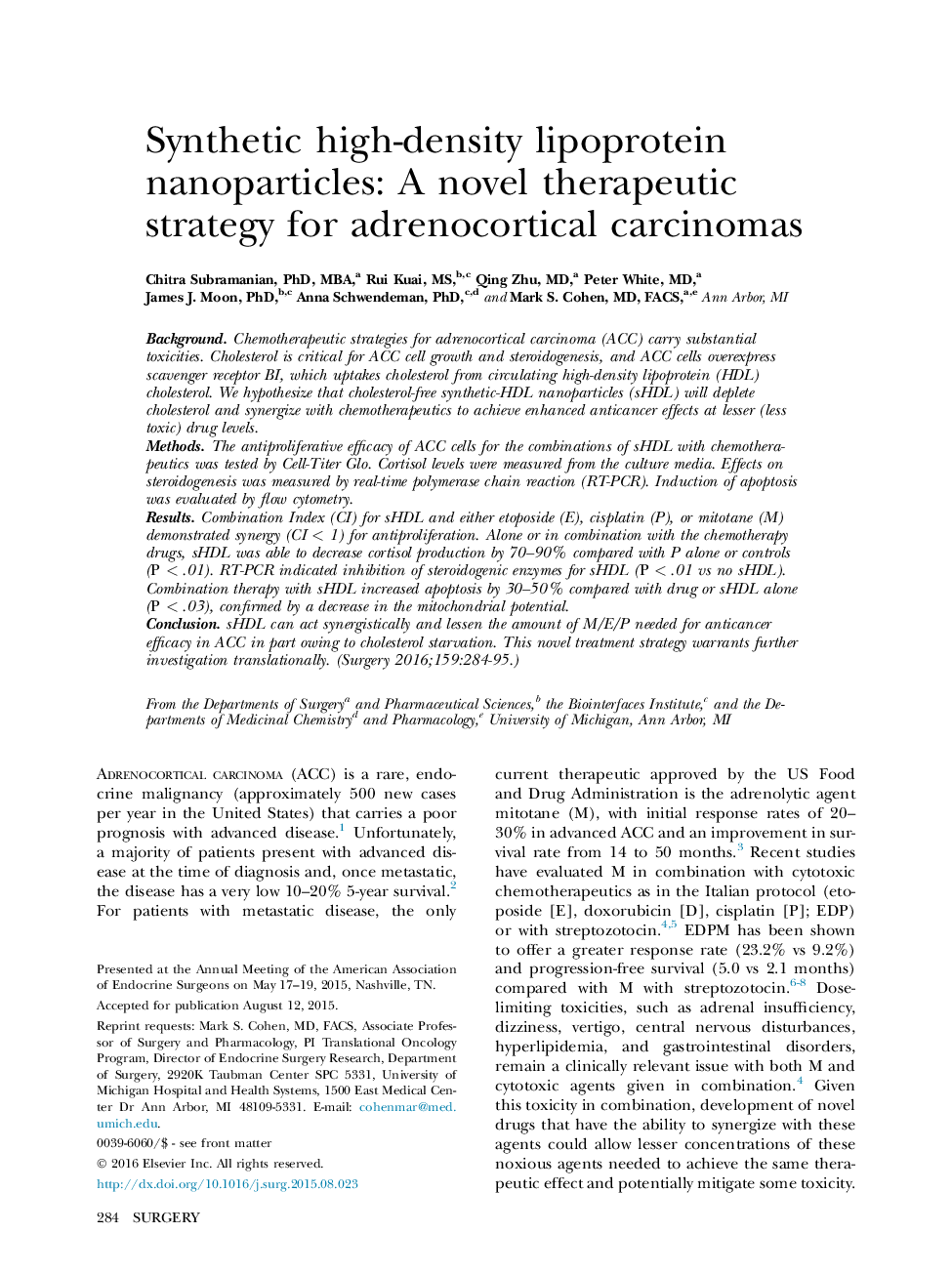| Article ID | Journal | Published Year | Pages | File Type |
|---|---|---|---|---|
| 4306661 | Surgery | 2016 | 12 Pages |
BackgroundChemotherapeutic strategies for adrenocortical carcinoma (ACC) carry substantial toxicities. Cholesterol is critical for ACC cell growth and steroidogenesis, and ACC cells overexpress scavenger receptor BI, which uptakes cholesterol from circulating high-density lipoprotein (HDL) cholesterol. We hypothesize that cholesterol-free synthetic-HDL nanoparticles (sHDL) will deplete cholesterol and synergize with chemotherapeutics to achieve enhanced anticancer effects at lesser (less toxic) drug levels.MethodsThe antiproliferative efficacy of ACC cells for the combinations of sHDL with chemotherapeutics was tested by Cell-Titer Glo. Cortisol levels were measured from the culture media. Effects on steroidogenesis was measured by real-time polymerase chain reaction (RT-PCR). Induction of apoptosis was evaluated by flow cytometry.ResultsCombination Index (CI) for sHDL and either etoposide (E), cisplatin (P), or mitotane (M) demonstrated synergy (CI < 1) for antiproliferation. Alone or in combination with the chemotherapy drugs, sHDL was able to decrease cortisol production by 70–90% compared with P alone or controls (P < .01). RT-PCR indicated inhibition of steroidogenic enzymes for sHDL (P < .01 vs no sHDL). Combination therapy with sHDL increased apoptosis by 30–50% compared with drug or sHDL alone (P < .03), confirmed by a decrease in the mitochondrial potential.ConclusionsHDL can act synergistically and lessen the amount of M/E/P needed for anticancer efficacy in ACC in part owing to cholesterol starvation. This novel treatment strategy warrants further investigation translationally.
